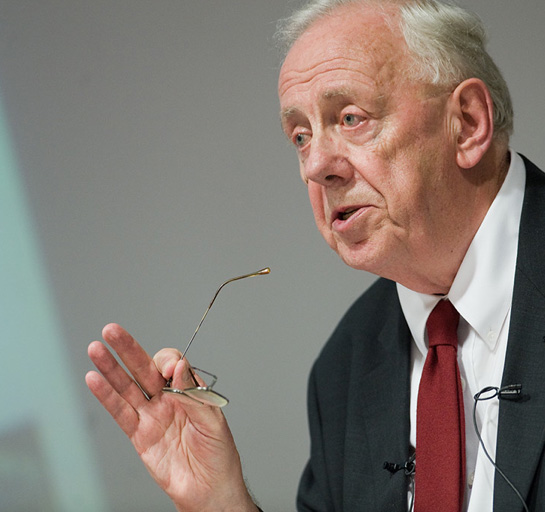
Prof. Alasdair Macintyre is perhaps the most interesting living philosopher. His famous book, “After Virtue” (London, Duckworth, 1981), is a study in moral theory that shows the weaknesses of revolutionary thesis and salutes the Greek, Roman and Christian tradition as the soundest from a rational point of view.
However, he expressly portrays himself as non-conservative.
The first thinker whom he calls a conservative and from whom he distances himself is Søren Kierkegaard. His ethics would be tributary to Kant’s and dissolve the whole tradition of our rational moral culture. The authority of moral principles, like promise-keeping or truth-telling, most typically in marriage, lies beyond reasons; it is purely based on a radical choice of those principles, since after Kant the notion of authority has become rather arbitrary and quite repugnant, so that appeals to it seem irrational. From his first essay “Either/Or” (Enten-Eller, in the original Danish title), authority and reason are not at all connected, but rather exclude each other. We should respect old ethical principles; but we remain ethical and not passion-ridden insofar as we choose so, and all moral principles derive in fact from that first choice.
Prof. Macintyre then goes on to criticise his second so-called conservative author, the master of Kierkegaard, none other than Immanuel Kant. His two central theses will be demonstrated by Nietzsche to be deceptive:
if the rules of morality are rational, they must be the same for all rational beings, in just the way that the rules of arithmetic are; and if the rules of morality are binding on all rational beings, then the contingent ability of such beings to carry them out must be unimportant – what is important is their will to carry them out.
As Kierkegaard, Kant accepts the maxims he had learnt from his virtuous Lutheran parents, so that the content of their morality is conservative. But, for Kant, morality is not determined by what leads to the happiness of a rational being or by what is commanded by God, as in the previous Aristotelian and Christian tradition; but by the sole and autonomous combination of reason and will, which produce one simple categorical imperative to comply with the moral code, if we are to find a rule that is universal and equal to all of us. Kantian categorical imperative is the symbol of liberal individualism.
Similarly, Denis Diderot and David Hume were moral conservatives; and yet they derived moral theory not from reason and will, but from desire and passions, again fully detached from our philosophical tradition. In the particular case of Hume, there is a denial of any innate spring of altruism or sympathy for others.
The fifth conservative scholar treated by Dr. Macintyre is Edmund Burke. He contrasts tradition with reason, a move that our author qualifies as ideological and confusing. Tradition can neither be the defence of the oligarchical revolution of property of 1688, or the adherence in economics to the doctrine and institutions of the free market. Conserving an older version of liberal individualism over a later one is judged as incoherence and as “conservative antiquarianism”, laudator temporis acti. Furthermore, one cannot believe that the passage of time confers legitimacy upon what was originally acquired through violence and aggression by those who stole and used violence to steal the common lands of England from the common people.
“After virtue” reviews of course other landmark thinkers, both classic and contemporary. But it is with those five that Dr. Macintyre develops his explicitly non-conservative Aristotelian paradigm.
Source for the image: Blackfriars Hall



 Subscribe
Subscribe